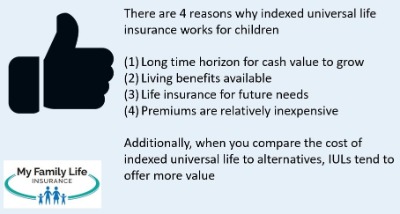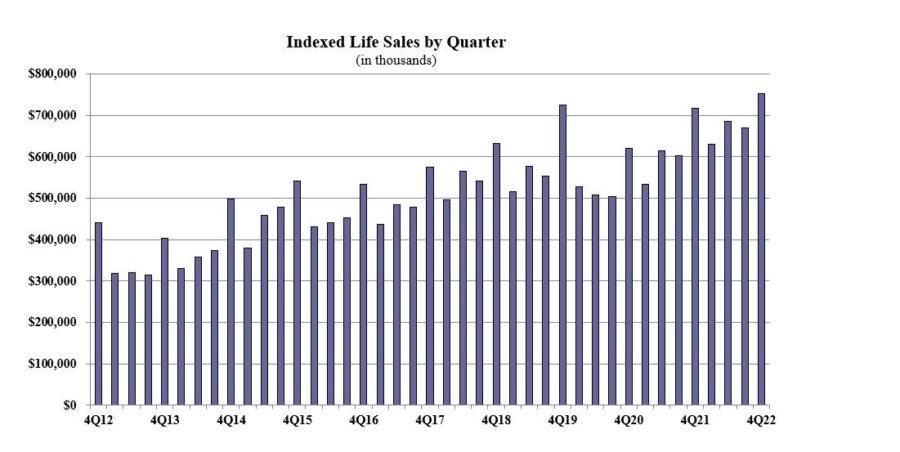All Categories
Featured
Table of Contents
Do they contrast the IUL to something like the Lead Overall Supply Market Fund Admiral Shares with no load, an expense proportion (EMERGENCY ROOM) of 5 basis factors, a turn over ratio of 4.3%, and a phenomenal tax-efficient document of circulations? No, they contrast it to some terrible proactively managed fund with an 8% load, a 2% EMERGENCY ROOM, an 80% turnover proportion, and a dreadful record of temporary resources gain distributions.
Mutual funds typically make yearly taxed circulations to fund proprietors, even when the value of their fund has actually gone down in value. Common funds not just call for earnings reporting (and the resulting annual taxes) when the common fund is increasing in worth, however can additionally enforce earnings tax obligations in a year when the fund has actually decreased in worth.
You can tax-manage the fund, collecting losses and gains in order to lessen taxable distributions to the capitalists, yet that isn't somehow going to change the reported return of the fund. The possession of mutual funds might require the common fund proprietor to pay approximated tax obligations (who should buy universal life insurance).

IULs are easy to position so that, at the proprietor's fatality, the beneficiary is not subject to either revenue or estate taxes. The very same tax obligation reduction techniques do not function nearly as well with mutual funds. There are many, usually pricey, tax catches related to the timed trading of shared fund shares, catches that do not apply to indexed life insurance policy.
Chances aren't really high that you're going to be subject to the AMT because of your common fund circulations if you aren't without them. The remainder of this one is half-truths at best. While it is real that there is no earnings tax obligation due to your beneficiaries when they inherit the profits of your IUL plan, it is likewise true that there is no earnings tax obligation due to your heirs when they inherit a mutual fund in a taxable account from you.
Best Iul
The government inheritance tax exemption restriction is over $10 Million for a couple, and expanding every year with rising cost of living. It's a non-issue for the huge bulk of doctors, much less the remainder of America. There are far better means to stay clear of estate tax concerns than getting investments with low returns. Mutual funds may trigger earnings tax of Social Safety and security advantages.

The development within the IUL is tax-deferred and may be taken as free of tax income through car loans. The policy owner (vs. the common fund manager) is in control of his or her reportable earnings, thus allowing them to lower or perhaps get rid of the tax of their Social Safety benefits. This is great.
Here's one more marginal concern. It's real if you buy a common fund for state $10 per share right before the distribution date, and it distributes a $0.50 distribution, you are after that mosting likely to owe taxes (probably 7-10 cents per share) although that you haven't yet had any type of gains.
In the end, it's really about the after-tax return, not just how much you pay in taxes. You're likewise possibly going to have even more money after paying those tax obligations. The record-keeping demands for owning shared funds are significantly extra intricate.
With an IUL, one's documents are maintained by the insurer, duplicates of yearly statements are mailed to the owner, and circulations (if any kind of) are amounted to and reported at year end. This set is also sort of silly. Obviously you must keep your tax documents in situation of an audit.
Index Life Insurance Pros And Cons
All you have to do is shove the paper right into your tax folder when it turns up in the mail. Barely a factor to get life insurance policy. It resembles this guy has never purchased a taxable account or something. Mutual funds are frequently component of a decedent's probated estate.
Additionally, they are subject to the hold-ups and expenses of probate. The earnings of the IUL plan, on the other hand, is constantly a non-probate distribution that passes outside of probate straight to one's named recipients, and is consequently not subject to one's posthumous lenders, unwanted public disclosure, or similar delays and expenses.
We covered this under # 7, however simply to recap, if you have a taxed mutual fund account, you have to place it in a revocable count on (and even easier, make use of the Transfer on Death designation) to avoid probate. Medicaid disqualification and lifetime earnings. An IUL can give their proprietors with a stream of earnings for their entire life time, no matter of the length of time they live.

This is helpful when organizing one's events, and transforming assets to income prior to an assisted living facility arrest. Mutual funds can not be transformed in a comparable fashion, and are usually considered countable Medicaid properties. This is another silly one promoting that bad people (you recognize, the ones who need Medicaid, a government program for the bad, to pay for their assisted living facility) ought to use IUL rather than mutual funds.
Universal Life Insurance Rate
And life insurance policy looks awful when contrasted rather against a pension. Second, people who have cash to get IUL over and beyond their pension are mosting likely to need to be horrible at managing cash in order to ever get Medicaid to pay for their nursing home costs.
Persistent and terminal health problem rider. All plans will certainly allow an owner's very easy access to cash money from their policy, frequently waiving any type of surrender fines when such people suffer a major disease, need at-home care, or become restricted to a nursing home. Mutual funds do not supply a similar waiver when contingent deferred sales fees still use to a shared fund account whose owner requires to sell some shares to fund the costs of such a keep.
Index Universal Life Insurance Uk
Yet you reach pay even more for that advantage (motorcyclist) with an insurance coverage. What a lot! Indexed universal life insurance coverage offers fatality advantages to the beneficiaries of the IUL proprietors, and neither the owner neither the recipient can ever before shed cash as a result of a down market. Common funds give no such assurances or survivor benefit of any kind of kind.
Now, ask yourself, do you actually need or desire a death benefit? I absolutely don't require one after I get to monetary self-reliance. Do I want one? I intend if it were cheap enough. Of training course, it isn't affordable. On average, a buyer of life insurance policy spends for the real cost of the life insurance policy benefit, plus the expenses of the policy, plus the revenues of the insurance provider.
Iul Life Insurance Policy
I'm not completely sure why Mr. Morais included the entire "you can't lose cash" once again below as it was covered quite well in # 1. He just wished to repeat the very best selling point for these things I intend. Once more, you do not lose nominal dollars, however you can shed genuine dollars, as well as face severe chance expense due to reduced returns.

An indexed global life insurance plan owner may trade their policy for a totally various policy without setting off revenue taxes. A common fund proprietor can not relocate funds from one common fund business to another without marketing his shares at the former (thus causing a taxable event), and repurchasing new shares at the last, usually based on sales fees at both.
While it holds true that you can trade one insurance coverage for another, the factor that people do this is that the initial one is such an awful plan that even after purchasing a brand-new one and going through the early, unfavorable return years, you'll still come out in advance. If they were sold the appropriate plan the initial time, they shouldn't have any type of desire to ever before exchange it and experience the early, unfavorable return years again.
Latest Posts
Iul Benefits
The Difference Between Whole Life And Universal Life Insurance
Cap Life Insurance